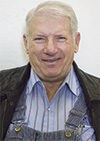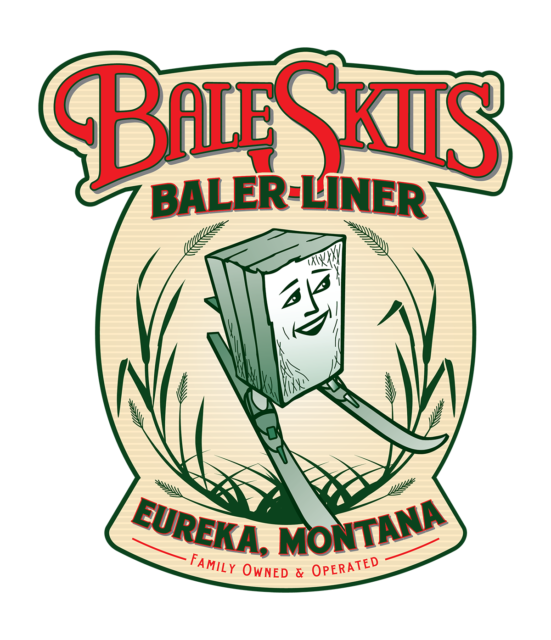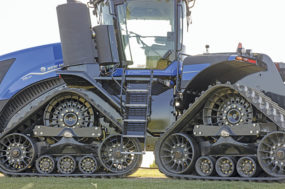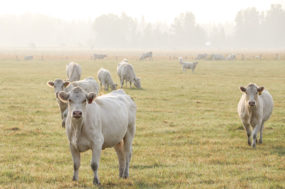Inside an engine, like the engine of your pickup or truck, is a crankshaft. As the crankshaft rotates, it ties together the rest of the engine to change the up-and-down motion of the pistons into the rotating flywheel at the rear of the engine that transmits the power generated to whatever that engine is mated to.
Visualize the pedals on a bicycle. As your legs move up and down, your feet on the pedals move in a circle, turning the up-and-down motion of your legs into a mechanical circular force which propels the bicycle.
The main bearing “journal” on the crankshaft is the center part that is anchored in the engine block, with lubricated bearings letting it turn freely. These central main bearing journals must be perfectly round, of precise diameter and perfectly in line with each other.
The other rotating part of the crankshaft are the rod-bearing journals. The connecting rods tie together the pistons, which move up-and-down, with the crankshaft, which turns around and round (visualize the bicycle). The precision of the rod-bearing journals must be equal to that of the crankshaft journals and the mating places of the main bearings.
The person who makes the bearing journals precisely round, straight and of the correct diameter is not called a journalist but a machinist.
Another kind of journal is the logbook kept by armies, explorers and scientists as they explore and experiment. Such logbooks document with great precision the actual happenings as observed.
One of the “scientific prizes” modern scientists got from the journals kept worldwide by explorers, colonizers and armies of the British empire was the recorded high and low temperatures of each day, which was required empire-wide for hundreds of years. This data became even more useful when comparing the record of weather patterns from tree rings, etc., to help scientists understand the changes in temperature on earth over the last few centuries.
But this precise record was not made by journalists but by scribes, company secretaries, logbook keepers, et al.
Now, if a mechanical “journal” needs to be precise and correct for machinery to function, and a scientific “journal” needs to be an absolutely correct documentation of time, place, happenings and temperature, then should not a person claiming to be a “journalist” be held to the above descriptions of correctness and accuracy?
A raconteur, on the other hand, is a storyteller. Because I claim to be a fair-to-middling raconteur, let me share the following:
Halfway home, I noticed that one of my shoes felt too long. I wiggled my toes and could still count five on that foot.
“Did the oral surgeon have anything interesting to say?” I mumbled to my wife through the remnant of the knockout shot still in my system.
“Just that this would have been easier when you were 14 instead of 54,” she answered.
Anesthesia is strange. Usually, once I come to, I pretty much remember things from that point and until then nothing after whatever they used to make me go “zonk.” This time, I remember asking myself in a gray fog how a jackhammer came to be in my mouth. Then nothing.
Then, coming out of a fog, I heard a discussion about something buried all the way to China. Then nothing. As the China discussion faded, someone was in awe that the leg attached to the foot that felt to be in a too-large shoe was lifting itself up against my chest.
But the longest blip was when I felt that my forehead had a cargo strap around it, keeping me from moving, and another around my chin, holding my mouth open. Everyone in the room was wearing masks and blue scrubs, except for one. He wore a hard hat and reflective vest and leather gloves. He was threading a bloody hook on a steel cable out the window from my lap. Seems like he mumbled something about being glad they brought the big wrecker.
Then, after a while, I was wondering how they got half a bale of cotton inside my mouth and between my jaws.
Next thing I remember was a crowd of people spinning me in circles until, on one spin, I recognized my wife’s car, with the door open. As they shoved me in and fastened my seat belt, I heard one more conversation – something about not letting me drive or make any big decisions for 24 hours.
On the road, the mental fog started to leave, and I got my mind around having had a wisdom tooth dug out.
I didn’t try to drive until the next day. But I did make an important decision. I decided it would not be wise … to ever again … tease my wife about not being smart enough … to grow “wisdom” teeth.
As I observe the world around me, I feel as though I’m being offered an attempt at being a raconteur under the label of “journalism,” as I see things on media and in print that are obviously fabrications just as much as the above “tale” of the wisdom tooth.
My thoughts are that wisdom includes being skeptical of much that appears online and in print these days. “Doctored” reporting equals fiction.










